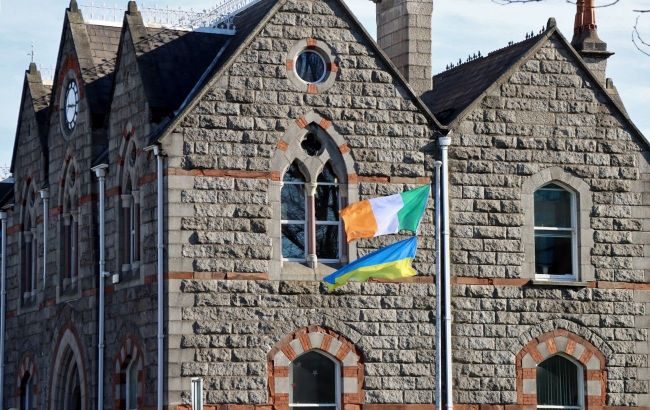Ukrainian refugees in Ireland targeted by fake extradition letters
 Ireland's support for Ukraine (facebook com CityDublinETB)
Ireland's support for Ukraine (facebook com CityDublinETB)
Ukrainian refugees in Ireland have recently fallen victim to a concerning scam involving fake extradition letters supposedly originating from the Ministry of Justice in Ukraine, according to The Irish Times.
The letters, dated September 7th, claim the ministry had "received a request from the government of Ukraine" for the person’s extradition "based on the allegation that you are eligible for military conscription in Ukraine and have failed to comply with your legal obligation to serve in the armed forces".
The recipients of these letters are instructed to appear before the High Court in October for a "hearing on the extradition request." The letters also warn that failure to appear may result in an arrest warrant and potential detention until the extradition process is concluded.
However, the Ministry of Justice has vehemently denied any involvement in this deceptive correspondence and has labeled it as a fraudulent scheme.
"Scams are common. They can happen at any time. Some of the most common types of scams involve the use of fake emails, calls or texts pretending to be from real companies and organisation. If anyone is unsure of the authenticity of any correspondence they receive purporting to be from the Ministry of Justice, they can contact the Department on 1800-221227," the Ministry added.
Meanwhile, in the Malahide area of Ireland, leaflets claiming to be from Housing Minister Darragh O'Brien were circulated, urging local residents to provide accommodation for refugees. The official denied any government involvement and referred to the leaflets as disinformation, stressing that the legitimate way to offer housing to Ukrainian refugees is through the website offerahome.ie.
Similar instances of fake letters targeting Ukrainian refugees have been reported in the UK in early February, where individuals were asked to provide information about Ukrainian men residing with them. Authorities confirmed that the letters on official government letterheads were indeed forgeries. A similar fabricated letter circulated in Lithuania in January was also debunked.
In Poland, warnings were issued about fake information-gathering efforts concerning male Ukrainian refugee populations, seemingly for mobilization purposes.

